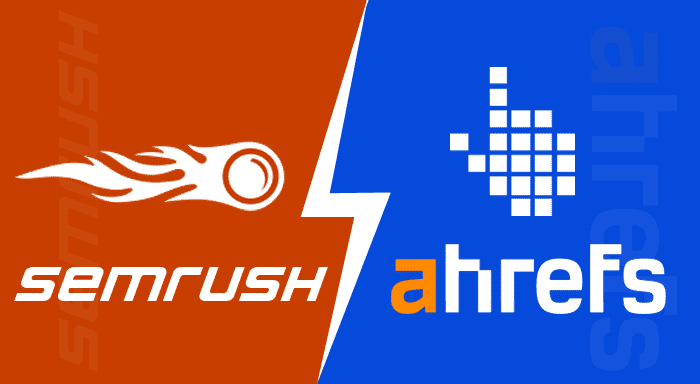Semrush vs Ahrefs: A Comprehensive Comparison for SEO Success

Introduction
semrush vs ahrefs In the world of digital marketing, SEO tools are indispensable for enhancing online visibility and driving organic traffic. Among the myriad of tools available, Semrush and Ahrefs stand out as two of the most powerful and widely used platforms. Both offer comprehensive features for keyword research, site audits, competitor analysis, and more, but choosing between them can be challenging. This article provides an in-depth comparison of Semrush and Ahrefs, exploring their strengths, weaknesses, and unique features to help you decide which tool aligns best with your SEO goals.
1. Overview of Semrush
History and Background
Semrush, founded in 2008, has grown to become a prominent player in the SEO industry. Originating as a small startup, it has expanded its offerings significantly over the years. The platform is known for its robust suite of SEO and digital marketing tools, which cater to various aspects of online visibility and strategy. Semrush’s evolution is marked by continual updates and feature expansions, ensuring it stays relevant in the ever-evolving SEO landscape. From its early days focusing on keyword research to its current status as an all-in-one SEO tool, Semrush has consistently added value to its users.
Features and Capabilities
Semrush boasts a comprehensive array of features designed to cover all aspects of SEO and digital marketing. Its keyword research tool provides in-depth insights into search volume, keyword difficulty, and competitive density, helping users identify high-potential keywords. The site audit feature is robust, offering detailed reports on site health, SEO issues, and recommendations for improvement. Competitor analysis tools enable users to spy on competitors’ strategies, uncovering their top keywords and backlink sources. Additionally, Semrush’s content marketing tools assist in creating optimized content strategies by identifying content gaps and trends.
Pricing Plans
Semrush offers several pricing tiers to accommodate different needs and budgets. The pricing plans are structured to provide value at various levels, from small businesses to large enterprises. The basic plan includes essential features, while higher tiers unlock advanced tools and additional functionalities. Semrush’s pricing is competitive, and the tool often justifies its cost through its extensive features and reliable data. Compared to its competitors, Semrush’s pricing structure is flexible, allowing users to choose a plan that best fits their requirements and scale.
2. Overview of Ahrefs
History and Background
Ahrefs, launched in 2011, quickly established itself as a leading SEO tool by focusing on backlink analysis and site audits. Founded by Dmitry Melnikov, Ahrefs has grown from a backlink analysis tool to a comprehensive SEO platform. The company’s commitment to data quality and innovative features has made it a favorite among SEO professionals. Ahrefs’ success is attributed to its extensive backlink database and its ability to provide detailed insights into competitors’ link profiles, making it a valuable asset for any SEO strategy.
Features and Capabilities
Ahrefs is renowned for its powerful backlink analysis tools. Its backlink database is one of the largest and most up-to-date, offering detailed information on link quality, anchor texts, and referring domains. The site audit feature provides a thorough examination of site health, highlighting technical SEO issues and offering actionable recommendations. Ahrefs also excels in keyword research, with features that provide insights into keyword difficulty, search volume, and SERP analysis. Additionally, Ahrefs’ content research tools help identify high-performing content and potential content gaps, aiding in the development of a robust content strategy.
Pricing Plans
Ahrefs offers a range of pricing plans tailored to different user needs. Its pricing is structured to provide flexibility, with plans that cater to individuals, small businesses, and large enterprises. Each plan includes a variety of features, with higher tiers unlocking more advanced tools and increased data limits. Ahrefs’ pricing is positioned competitively, reflecting the value and quality of its data and features. For users seeking in-depth backlink analysis and comprehensive SEO insights, Ahrefs’ plans offer a solid return on investment, making it a worthy consideration for serious SEO professionals.
3. Comparative Analysis: Semrush vs Ahrefs
Keyword Research
When it comes to keyword research, both Semrush and Ahrefs offer robust tools, but they differ in their approach and depth. Semrush provides a detailed keyword research tool that includes metrics such as keyword volume, difficulty, and CPC. Its keyword magic tool allows users to generate keyword suggestions and see metrics for a wide range of related terms. Ahrefs, on the other hand, offers an extensive keyword explorer tool that provides accurate keyword difficulty scores, search volume, and click-through rates. Ahrefs also offers unique insights into the SERP landscape, helping users understand the competitive environment for each keyword. Both tools are highly effective, but the choice may depend on the specific features and user experience preferred.
Site Audit Capabilities
Both Semrush and Ahrefs excel in site audit capabilities, though each has its own strengths. Semrush’s site audit tool provides a comprehensive analysis of site health, highlighting issues related to SEO, usability, and security. It offers actionable recommendations and a clear overview of site performance. Ahrefs’ site audit tool is known for its detailed and technical analysis, providing in-depth insights into on-page and technical SEO issues. It also offers a user-friendly interface with clear visualizations of site health. Users may prefer Semrush for its broad focus on various site issues or Ahrefs for its detailed technical insights.
Competitor Analysis
Competitor analysis is a critical feature of both tools, with each offering unique insights. Semrush provides a detailed overview of competitors’ organic and paid search strategies, allowing users to analyze their top keywords, traffic sources, and ad strategies. Its competitive research tool also helps identify new opportunities and threats. Ahrefs focuses on backlink analysis for competitor research, providing a detailed look at competitors’ link profiles and their most valuable backlinks. Ahrefs’ competitor analysis tool is particularly useful for understanding link-building strategies and uncovering potential link opportunities. Both tools offer valuable insights, but the choice may depend on whether users prioritize keyword or backlink analysis.
Backlink Analysis
Backlink analysis is a strong suit for both Semrush and Ahrefs, but each tool has its own advantages. Semrush’s backlink analysis tool provides insights into referring domains, anchor texts, and link quality. It also includes a backlink audit feature that helps identify and disavow harmful links. Ahrefs is renowned for its extensive backlink database and detailed analysis features. Its tool offers comprehensive information on link quality, referring domains, and anchor texts, with a focus on accuracy and depth. Ahrefs’ backlink analysis is often praised for its data freshness and extensive coverage. Users seeking detailed backlink insights may find Ahrefs’ tool to be particularly valuable.
Content Research and Marketing Tools
Both Semrush and Ahrefs offer tools for content research and marketing, though their approaches differ. Semrush’s content marketing toolkit includes features for content ideation, optimization, and gap analysis. It helps users identify trending topics, optimize content for search engines, and track content performance. Ahrefs provides content research tools that focus on identifying high-performing content, analyzing content gaps, and understanding content trends. Its tools help users create data-driven content strategies and identify opportunities for content improvement. The choice between Semrush and Ahrefs may depend on the specific content research and optimization features preferred by users.
User Experience
User experience is a crucial factor in choosing between Semrush and Ahrefs. Semrush offers a user-friendly interface with intuitive navigation and comprehensive support resources. Its platform is designed to be accessible to users at all levels, with detailed tutorials and customer support available. Ahrefs is known for its clean and straightforward interface, with a focus on providing clear and actionable insights. Its platform is also well-supported with extensive documentation and responsive customer service. Both tools offer a positive user experience, but individual preferences for interface design and support may influence the choice.
Integrations and API Access
Integrations and API access are important for users seeking to incorporate SEO tools into their broader digital marketing workflows. Semrush offers a range of integrations with popular tools and platforms, including Google Analytics, Google Search Console, and various CRM systems. Its API allows users to access data programmatically and integrate Semrush’s features into custom applications. Ahrefs also provides API access, with a focus on backlink data and keyword research. Its integrations with other tools are more limited but still offer valuable connectivity for users. The choice between Semrush and Ahrefs may depend on the specific integrations and API functionalities required.
4. Pros and Cons of Each Tool
Semrush Pros and Cons
Pros:
- Comprehensive suite of tools covering all aspects of SEO and digital marketing.
- Robust keyword research and site audit features.
- Detailed competitor analysis tools.
- Flexible pricing plans catering to various needs.
- User-friendly interface with extensive support resources.
Cons:
- Some users may find the platform’s breadth overwhelming.
- Higher-tier plans can be costly for small businesses.
- Learning curve for new users due to the extensive feature set.
Ahrefs Pros and Cons
Pros:
- Extensive backlink database and detailed backlink analysis.
- Accurate keyword research and SERP analysis.
- In-depth site audit and content research tools.
- Clean and straightforward interface.
- Competitive pricing for the value provided.
Cons:
- Limited integrations compared to some competitors.
- API access is more focused on specific features.
- Can be expensive for users needing advanced features or high data limits.
Conclusion
Both Semrush and Ahrefs are powerful SEO tools with distinct strengths. Semrush excels with its broad feature set, user-friendly interface, and comprehensive digital marketing tools. It is ideal for users seeking an all-in-one solution for SEO and beyond. Ahrefs, on the other hand, stands out with its superior backlink analysis, accurate keyword research, and clean interface. It is particularly well-suited for users who prioritize detailed link analysis and content research. Ultimately, the choice between Semrush and Ahrefs depends on your specific SEO needs, budget, and preference for features. Evaluating these factors





